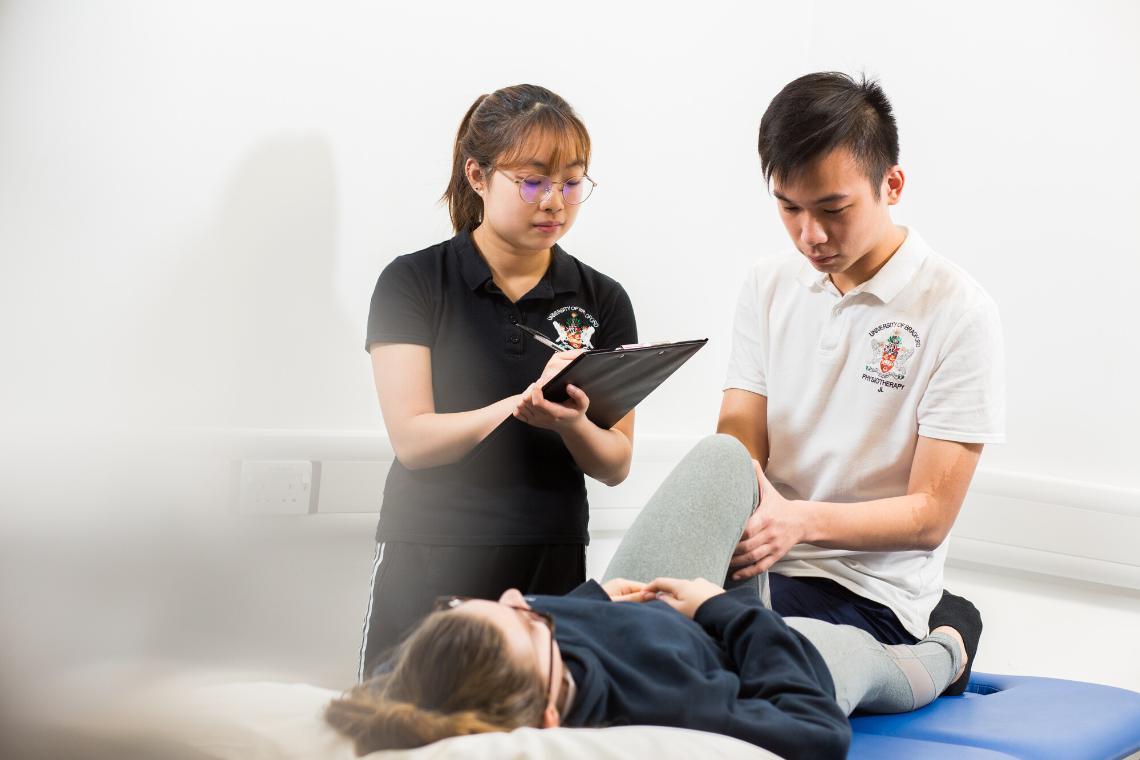
Why MPhysiotherapy?
Bradford Life Blog
Serena is currently studying MPhysiotherapy - Sport and Exercise Medicine. She tells us why she chose this course and shares some tips for anyone considering a career in physiotherapy.
As you may have heard, physiotherapy is related to exercising and rehabilitation. But as a third-year physiotherapy student, I can tell you that it's only a small part of physiotherapy.
Redefining your understanding
Physiotherapy consists of three major areas: Musculoskeletal, Neurological, and Respiratory. They all split into smaller components and you need to be prepared to learn a lot more in detail than you're used to.
My course, MPhysiotherapy - Sport and Exercise Medicine, is specifically focused on sports and exercise medicine. So, if you're someone who loves sports, standing pitch side, and first aid, you really should consider this course!
It's an undergraduate degree just like any other physiotherapy degree, however, each year academics urge you towards the Master’s level so you can graduate with a Master’s degree!

What’s special about this course?
Even though you learn about all sorts of theories and practice with your peers, once you begin your placement, you will realise not everything can be learned by just reading books.
You will get six placements throughout your course and each placement is around 5-6 weeks long, which allows you to experience working as a physiotherapist in different settings.
For example, if you have a placement at a football club, you would be there helping players rehabilitate with the plan that you come up with (don’t worry about this, your educator will guide you through if you are not confident in the beginning). To see someone progress throughout the time you were with them, would make you feel successful and motivated, and no one can take away this experience from you.
Tips for you to be one of us
If you are considering studying physiotherapy, here are two tips that are important but often not mentioned:
Volunteer
You have probably been learning through reading and remembering, but to work as one of the healthcare professionals, it’s not always about how smart you are or how good your memory is. Physiotherapy is a very practical course that sometimes can only be learned through experience.
To understand patients and the environment that you may be working in, volunteering is always the best way to start things. I would highly recommend you start with volunteering in NHS hospitals as that will be the place where you will have your placements and possibly start your career. This type of volunteering will help you decide whether this is the right course for you.

Research
When you apply for university, the personal statement is always something that lots of people struggle with (including myself!). When we were asked about our reason for choosing this course, lots of us struggled with writing down the reasons for wanting to study.
So, to make your personal statement and interview answers interesting, research is the key. Read articles about physiotherapy from useful sites such as Google Scholar.
I hope you found this useful and consider joining our course!
Are you interested in studying MPhysiotherapy - Sport and Excercise Medicine? Discover more about course content, entry requirements and how to apply.
